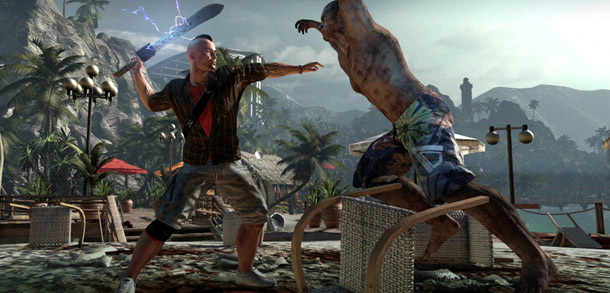
[box_light]SideQuesting knows that not everyone plays video games the same way, especially when engaging in multiplayer gaming. That’s why we’ve begun our new multiplayer reviews, handily labeled “Co-Op”. In many instances it may be a look at a multiplayer or co-op portion of a game, or just a multi-person review of a game overall. So sit back, peep this page, and feel free to comment below.[/box_light]
This week we take a look at Techland/Deep Silver’s Dead Island, playing it on Valve’s Steam service.
[box_light]Michael Bachmann, Host / Fistful of Pixels[/box_light]
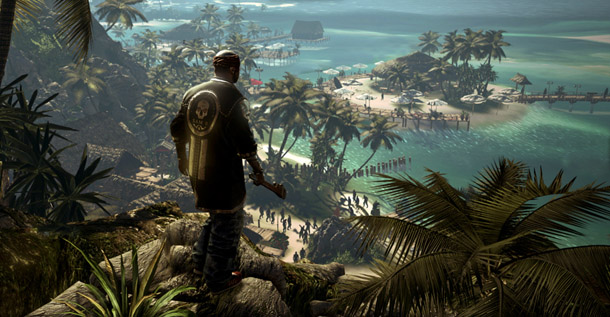
Dead Island is not a bad game. I want to be extremely clear on that point. The story is interesting, the environments are beautiful, and the underlying combat system is excellent. However, it only takes a couple of major problems to ruin an otherwise competent game, like that one kid in class that gets everyone else detention.
For instance, Dead Island focuses primarily on melee combat, which is fine. You’re encouraged to use weapons you find laying around and then upgrade them. That would be fine if you could rely on the weapons you invest in. I chose to make a primarily blade-focused character and found that even when I upgraded their durability, the weapons would break after a couple of minutes of use. You can still use a broken weapon but it does little to no damage. That means that until you can get to a workbench (which can be a long time during some missions), you are forced to use whatever you can scrounge up, which is usually only slightly better than your weapon in its broken state. When you finally do make it to a workbench it costs some astronomical amount of money to repair your stuff. Inevitably, I would run out of money and be forced to use trash items for hours at a time.
I would be willing to overlook all of that if the combat was fun, and for a while it definitely was! The melee system really shines when fighting one or two enemies. The game allows you to target individual body parts by just pointing the cross hair in that part’s general direction, leading to broken bones or satisfying dismemberment. You can also kick to stun an enemy. Later on, however, you’re not fighting one or two enemies. You’re fighting groups of five or six, getting stunned, interrupted, and knocked over constantly, leaving you no choice but to backpedal and throw whatever garbage you have in your inventory. After all the zombies are dead, you retrace your steps and pick up all of the available weapons, because you never know how long it’ll be till you find another meat cleaver.
I tried really hard to like Dead Island, but I couldn’t look past its problems. Some people may have better experiences by, say, sticking to blunt weapons with max durability. But, I wanted to use blades, and the game simply didn’t let me develop and enjoy them like I wanted to. That’s really the point of character customization: I shouldn’t be forced into one specific subset of skills just to have any fun.
[box_light]Taylor Bliss, Editor / Armless Octopus[/box_light]
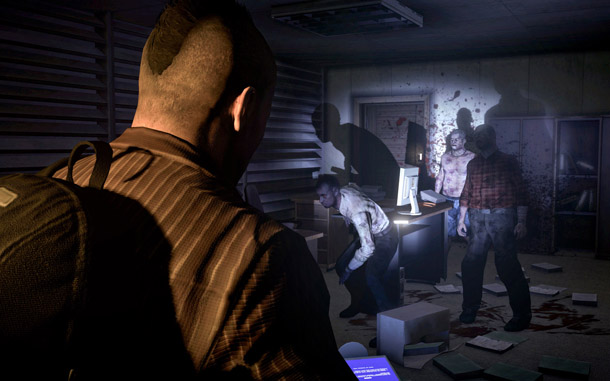
I’ll be upfront with you: I’m a sucker for games that meld genre’s together in interesting ways. In many ways that’s what drew me into Dead Island. In the days when zombie based FPS’s are already plentiful, Dead Island throws in solid RPG elements that breathes a bit of new life into a stagnating space.
As one of the four people immune to a zombifying plague, you do the only intelligible thing: find every excuse to kill as many zombies as possible. It won’t take much; there’s an NPC at every turn ready to give you an excuse to find more mindless brain eaters to mangle. The quests will also net you rewards in XP and cash or items. These RPG elements drive the game, not only awarding the player with items that further the experience by allowing them to kill zombies better, but also through expanding the story surrounding Banoi and the cause of the undead outbreak.
Though I love the ground work set in Dead Island, there are several factors that hold it back. The inventory system borders on archaic, for one. In a game built around collecting items, Dead Island sets a small cap on the amount of weapons you can carry, and provides you with no way of selling more than a single item at once; it seems at times that you’re being punished for wanting to search every bag of luggage and garbage can for the loot awaiting you. I avoided selling items fervently, partially because of the inconvenience, but also because of the requirements of the crafting system, which, in the end, I thought were too costly. Money is an issue because as the player/character you’re actually fighting two enemies: the zombies and the weapons you’re supposed to be slaughtering them with. Every hit of a bat or slash of a knife knocks a bit off of the durability of your weapons — let them go to far and they’re unusable.
Despite the mixed signals you get from Dead Island it’s clear that there’s a lot of quality content there. A full playthrough will run 20+ hours with a few sidequests, and can easily get to 30 or more if you complete them all. Just make sure you’re frugal on Banoi, you’re going to need it.
[box_light]Steven Strom, Editor / SideQuesting[/box_light]
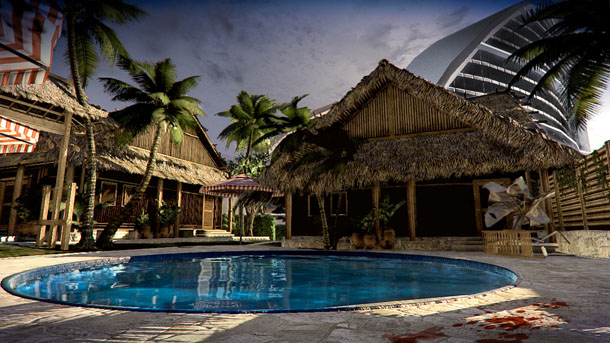
With the recent zombie zeitgeist that has permeated gaming, it takes a lot for an undead-centric title to really break out on its own.
When I first saw Dead Island in action, I came to expect some sort of deconstruction of the zombie apocalypse genre. Blending the first-person perspective and four player co-op with the survivalist weapon melee combat and weapon modifying of genre stalwarts Left 4 Dead and Dead Rising, Dead Island had the potential to be at the top of its class.
Dead Island is a great game in a bad game’s skin. For every great mechanic Dead Island introduces there is an infuriating and baffling design choice ready to restrain it. Combat is entertaining, yet ever-disintegrating weapons keep you from enjoying it for long. The story and characters have great promise but are almost entirely forgotten once the game kicks off. The crafting system is engaging while scrounging for parts is an exercise in tedium thanks to a desperate need for an auto-loot button. Side quests are dense and numerous and yet ninety percent of them are bloody-minded fetch quests. The list goes on.
What I really wanted from Dead Island was a deconstruction of a popular formula; something to really turn the zombie survival school on its ear. What I got instead was a solid, beautiful and flawed role-playing game that feels like it was rushed out of development in order to take advantage of its extremely popular trailer.
With a few more months of play testing and bug fixes (I ran into at least two game-breaking bugs) Dead Island could have really been something special. As it stands, the game seems more like a great proof of concept that is much more fun than it has any right to be, and has me excited for a more polished sequel.
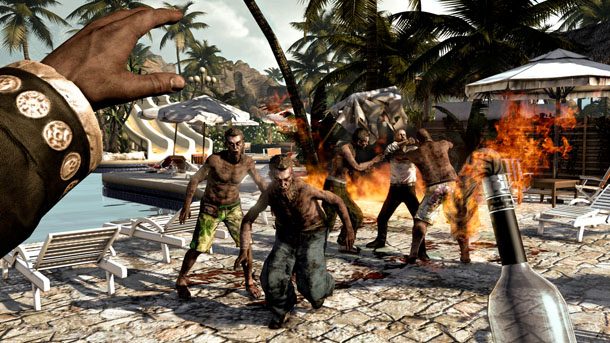
This review is based on copies of the game for Steam sent to SideQuesting’s reviewers by the publisher.

6 Comments